Related Research Articles

Wilhelm Richard Wagner was a German composer, theatre director, polemicist, and conductor who is chiefly known for his operas. Unlike most opera composers, Wagner wrote both the libretto and the music for each of his stage works. Initially establishing his reputation as a composer of works in the romantic vein of Carl Maria von Weber and Giacomo Meyerbeer, Wagner revolutionised opera through his concept of the Gesamtkunstwerk, by which he sought to synthesise the poetic, visual, musical and dramatic arts, with music subsidiary to drama. He described this vision in a series of essays published between 1849 and 1852. Wagner realised these ideas most fully in the first half of the four-opera cycle Der Ring des Nibelungen.
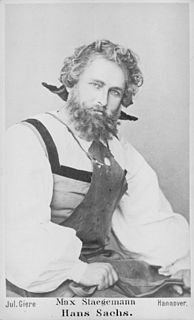
Die Meistersinger von Nürnberg, WWV 96, is a music drama in three acts, written and composed by Richard Wagner. It is among the longest operas commonly performed, usually taking around four and a half hours. It was first performed at the National Theatre Munich, today the home of the Bavarian State Opera, in Munich, on 21 June 1868. The conductor at the premiere was Hans von Bülow.
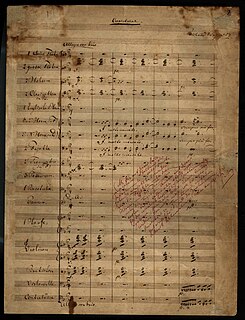
Der fliegende Holländer, WWV 63, is a German-language opera, with libretto and music by Richard Wagner. The central theme is redemption through love. Wagner conducted the premiere at the Königliches Hoftheater Dresden in 1843.
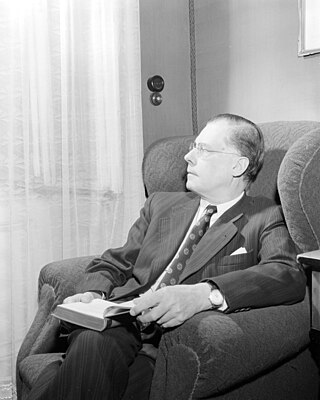
Karl August Leopold Böhm was an Austrian conductor. He was best known for his performances of the music of Mozart, Wagner and Richard Strauss.
Dasein is a German word that means "being there" or "presence", and is often translated into English with the word "existence". It is a fundamental concept in the existential philosophy of Martin Heidegger. Heidegger uses the expression Dasein to refer to the experience of being that is peculiar to human beings. Thus it is a form of being that is aware of and must confront such issues as personhood, mortality and the dilemma or paradox of living in relationship with other humans while being ultimately alone with oneself.

Being and Time is the 1927 magnum opus of German philosopher Martin Heidegger and a key document of existentialism. Being and Time had a notable impact on subsequent philosophy, literary theory and many other fields. Though controversial, its stature in intellectual history has been compared with works by Kant and Hegel. The book attempts to revive ontology through an analysis of Dasein, or "being-in-the-world." It's also noted for an array of neologisms and complex language, as well as an extended treatment of "authenticity" as a means to grasp and confront the unique and finite possibilities of the individual.
Harry Alfred Robert Kupfer was a German opera director and academic. A long-time director at the Komische Oper Berlin, he worked at major opera houses and at festivals internationally. Trained by Walter Felsenstein, he worked in the tradition of realistic directing. At the Bayreuth Festival, he staged Wagner's Der fliegende Holländer in 1978 and Der Ring des Nibelungen in 1988. At the Salzburg Festival, he directed the premiere of Penderecki's Die schwarze Maske in 1986 and Der Rosenkavalier by Richard Strauss in 2014.

Ludwig Heinrich Christian Geyer was a German actor, playwright, and painter.

Marie ("Mimi") Baronessvon Schleinitz was an influential salonnière of the early German Reich in Berlin and one of the most important supporters of Richard Wagner.

Paul Maximilian Lamoral, Prince of Thurn and Taxis, was the third child of Maximilian Karl, 6th Prince of Thurn and Taxis and his second wife Princess Mathilde Sophie of Oettingen-Oettingen and Oettingen-Spielberg. He was buried in Cannes, at the Cimetière du Grand Jas, Allée du Silence no. 33 under the name of Paul de Fels.
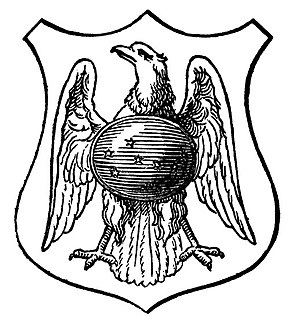
Mein Leben is the title given by the composer Richard Wagner to his autobiography, covering the years from his birth in 1813 to 1864.
Sebastian Weigle is a German horn player and conductor. He is known for conducting the works of Richard Wagner in Bayreuth and the Oper Frankfurt.

The Ancient Law is a 1923 German silent drama film directed by E.A. Dupont and starring Henny Porten, Ruth Weyher and Hermann Vallentin. The son of an Orthodox Rabbi faces hostility from his father when he decides to become an actor.
The Kaisermarsch is a patriotic march composed by Richard Wagner in 1871 in order to exalt the foundation of the German Empire after the victorious Franco-Prussian War.
Philharmonia Zurich is the orchestra of Zurich Opera. As an independent body of 116 contract players, it has existed since 1985 under the name of Zurich Opera Orchestra. It was renamed in 2012 with the appointment of director Andreas Homoki and general music director Fabio Luisi.
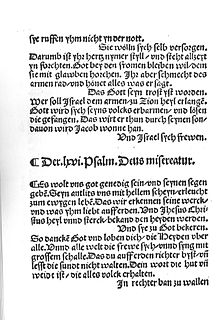
"Es woll uns Gott genädig sein" is a Lutheran hymn, with words written by Martin Luther based on the Psalm 67. The hymn in three stanzas of nine lines each was first published in Wittenberg in 1524. Its best known hymn tune, Zahn No. 7247, was published in Strasbourg in 1524. Heinrich Schütz and Johann Sebastian Bach wrote settings of the hymn. It was translated to English and has appeared in dozens of hymnals.
Nikolai Andrej Schukoff is an Austrian operatic tenor.
Martin Geck was a German musicologist. He taught at the Technical University of Dortmund. His publications concerned a number of major composers. Among the composers in whom he specialised was Johann Sebastian Bach.
Michael Volle is a German operatic baritone. After engagements at several German and Swiss opera houses, he has worked freelance since 2011. While he first appeared in Mozart roles such as Guglielmo, Papageno and Don Giovanni, he moved on to title roles such as Verdi's Falstaff, Tchaikovsky's Eugene Onegin and Alban Berg's Wozzeck. He has performed at major opera houses in Europe and the Metropolitan Opera, in roles including Mandryka in Arabella and Hans Sachs in Die Meistersinger von Nürnberg. His awards include Singer of the Year by Opernwelt and Der Faust.
Ulrich Drüner is a German musicologist and orchestra musician.